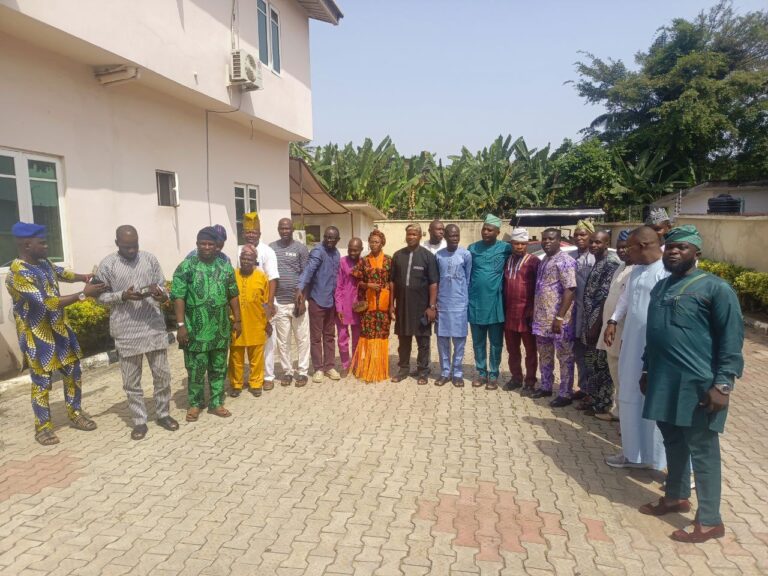
The Joint Admissions and Matriculation Board (JAMB) has announced 150 as the minimum acceptable Unified Tertiary Matriculation Examination (UTME) score for admission into Nigerian universities for the 2025/2026 academic session. This decision was taken during the annual Policy Meeting on Admissions to Tertiary Institutions held in Abuja on Tuesday, July 8, 2025.
The policy meeting, attended by top stakeholders in the education sector; the vice-chancellors of universities, rectors of polytechnics, provosts of colleges of education, and regulatory agencies also pegged the minimum cut-off score for polytechnics and colleges of education at 100, and introduced a benchmark of 140 for colleges of nursing across the country.
The meeting, chaired by JAMB Registrar Prof. Ishaq Oloyede, involved an open voting process by heads of various tertiary institutions, with representatives from both public and private institutions nationwide contributing to the deliberations.
This year’s decision marks a slight upward revision for universities, as the previous year’s national minimum was 140. The cut-off for polytechnics and colleges of education, however, remains unchanged. The new addition of a 140 score for colleges of nursing reflects growing recognition of the importance of standardized entry requirements in healthcare education.
Despite calls by the JAMB Registrar and the Minister of Education, Dr. Yusuf Tunji Alausa, for the minimum university cut-off to be increased to 160, the majority of institutional leaders resisted the proposal, citing equity, regional balance, and the need to accommodate varying levels of access to education across the country.
Among those who supported lower thresholds were Prof. Ernest Izevbigie, Vice-Chancellor of Michael Lawrence University, Abuja, who proposed a cut-off of 140, The Vice-Chancellor of Lighthouse University, who supported a score of 130, On the other hand, Prof. Ayodeji Agboola of Olabisi Onabanjo University backed the higher benchmark of 160 but received minimal support, Prof. Owunari Georgewill, Vice-Chancellor of the University of Port Harcourt, proposed 150, a figure that eventually gained broader consensus and was adopted.
Prof. Oloyede, in his remarks, clarified that while institutions maintain the autonomy to set higher institutional cut-off marks based on their standards and available capacity, no tertiary institution is permitted to admit any candidate who scores below the nationally approved minimum benchmark.
“Every institution should maintain its own approved minimum. However, it must not fall below the national standard. We expect strict adherence to these policies to ensure fairness and quality assurance in the admission process,” Oloyede emphasized.
In a parallel policy directive, the Federal Government officially reaffirmed 16 years as the minimum age requirement for admission into all tertiary institutions across Nigeria. This declaration was made by Dr. Tunji Alausa, Minister of Education, while delivering the opening address at the policy meeting.
Dr. Alausa stated that the decision was based on a national consensus to align academic readiness with cognitive and emotional maturity, adding that the previous proposal to raise the minimum entry age to 18 was reviewed and subsequently reduced.
“The entry age for admission into tertiary institutions is now officially pegged at 16 years. It is a non-negotiable national policy and must be fully enforced,” Alausa declared.
The Minister warned that any admission processed outside the Central Admissions Processing System (CAPS), JAMB’s official platform for managing tertiary admissions would be considered illegal and nullified.
He stressed that while the 16-year threshold would be strictly upheld, there would be provisions for rare exceptions in the case of gifted children or students with accelerated learning paths.
“We recognize that there may be extraordinary cases where students have progressed exceptionally fast. In such instances, institutions must provide adequate documentation and justification before such candidates can be considered,” he explained.
Alausa also warned against falsification of records, particularly age manipulation, which has become increasingly common among admission seekers attempting to circumvent age restrictions.
“We will be working with relevant agencies and institutions to ensure data integrity in the admission process. Anyone found engaging in such malpractice will face serious consequences,” he said.
The new admission benchmarks and age regulations are expected to guide the ongoing 2025/2026 admission cycle into Nigerian tertiary institutions. With increasing emphasis on merit, transparency, and proper documentation, both the Ministry of Education and JAMB are expected to tighten enforcement and increase oversight.
Institutions have been advised to review and adjust their internal admission policies in line with the national guidelines, while applicants are urged to familiarize themselves with the new requirements to avoid disqualification.






